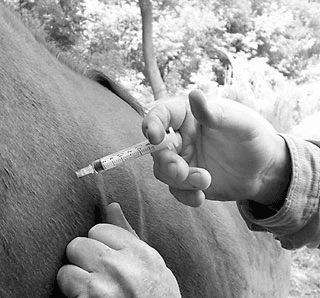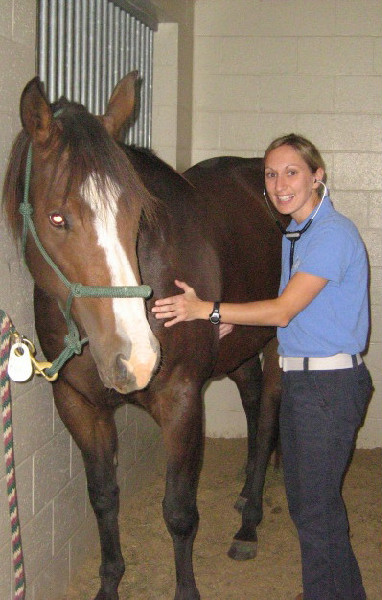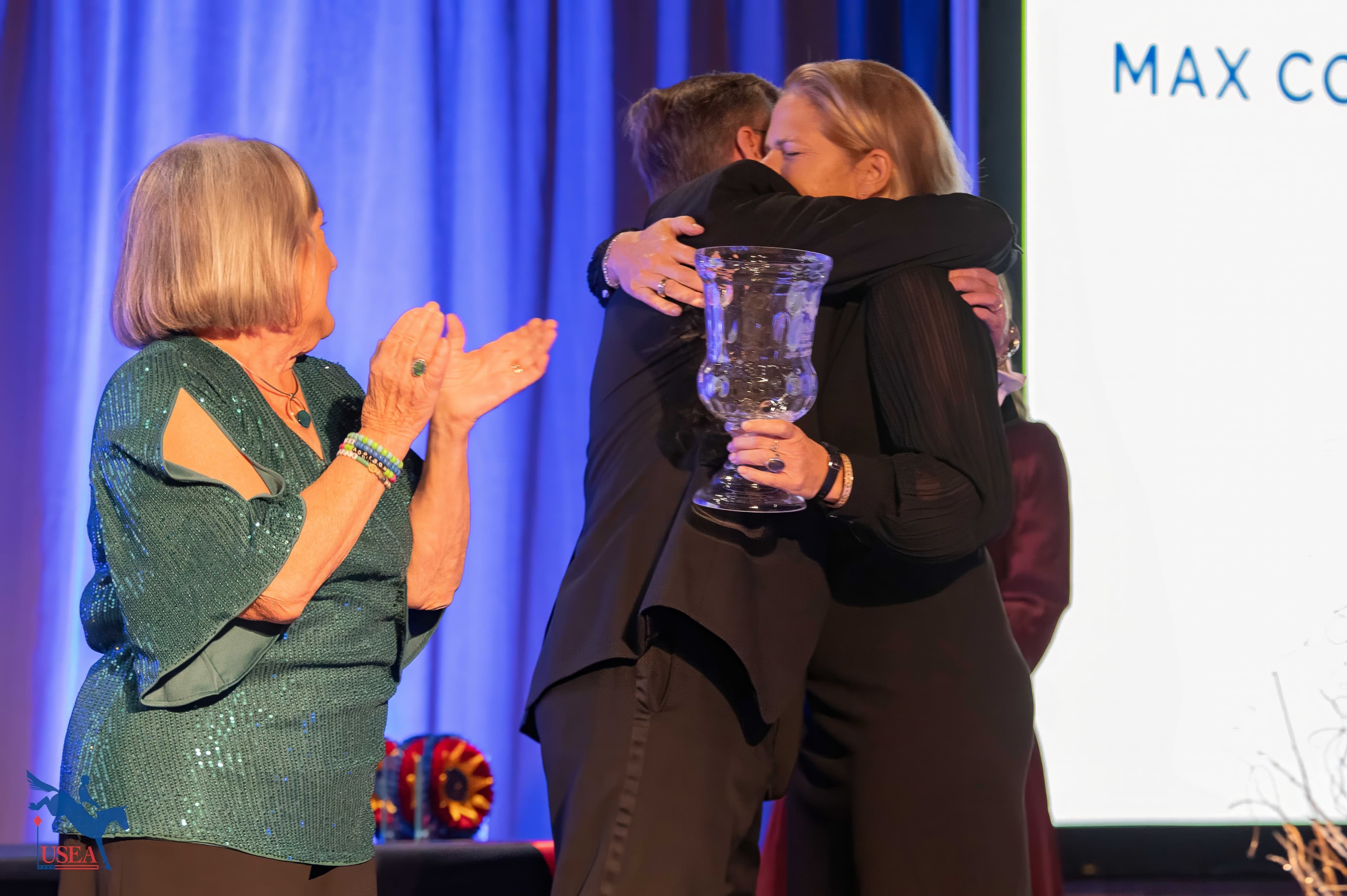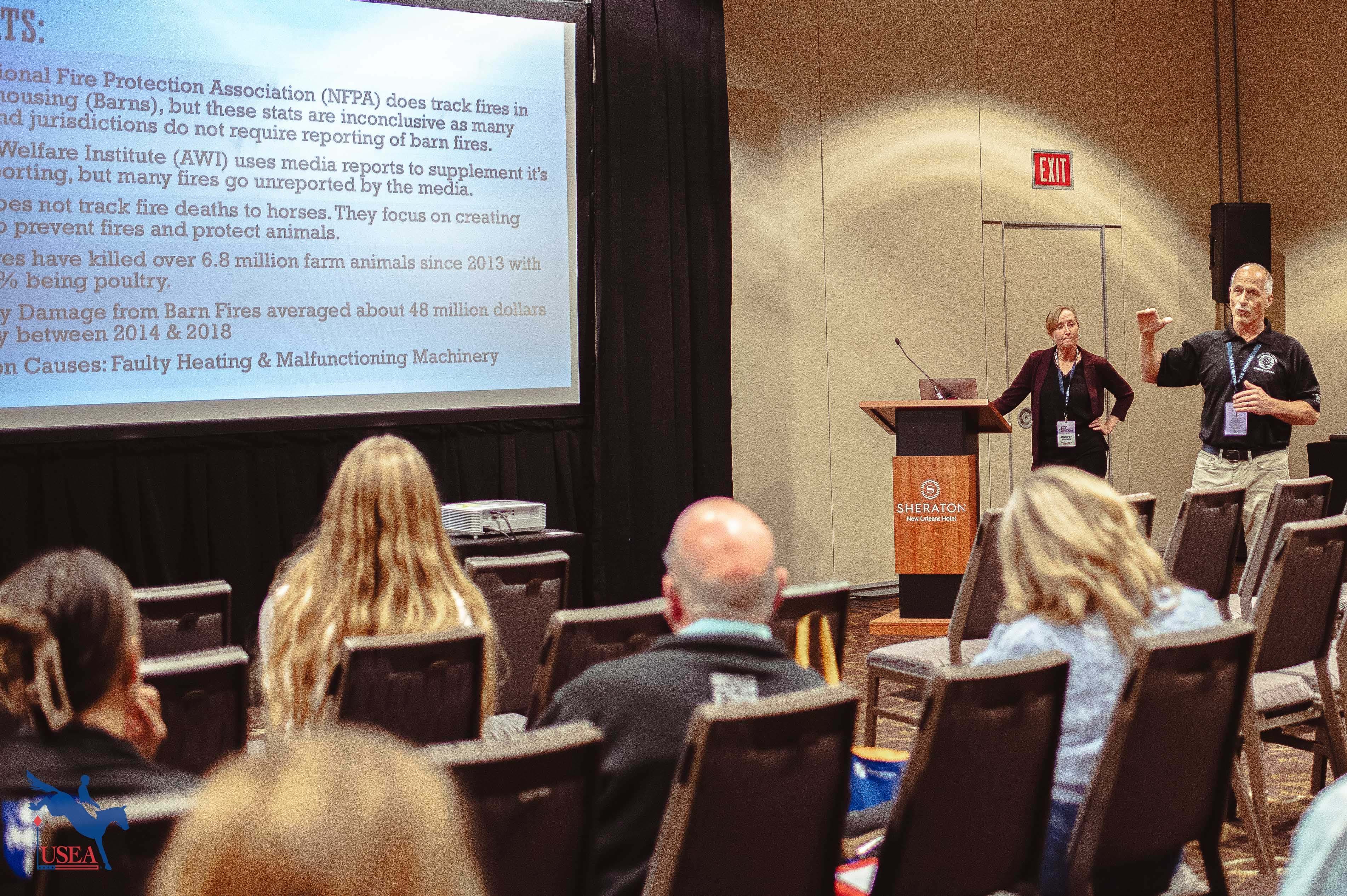Your Horse's Spring Tune-Up: Vaccination

Although in some areas of the country it might not feel like spring has arrived, the season actually did start nearly ten days ago. Spring means many things: fresh flowers, new life, spring cleaning, and of course spring vaccinations! Here is the inside scoop on the annual spring vaccinations.
Why should I vaccinate my horse?
- To prevent deadly disease!
- Remember—most diseases that we vaccinate against are spread in the environment, NOT horse-to-horse. Therefore, ALL horses are at equal risk.
How do vaccines work?
Each vaccine is made with a “part” of the disease that it prevents. This part is inactivated or killed so that it is no longer harmful to your horse. When the horse is vaccinated, the immune system is stimulated to make antibodies to the disease. Then, if your horse is exposed to the natural form of the disease, the antibodies respond and attack preventing infection.
Recommendations:
Spring: Eastern &Western Encephalitis, Tetanus, West Nile Virus, Rhino/Flu, Potomac Horse Fever, Rabies
Fall: West Nile Virus, Rhino/Flu, Potomac Horse Fever, Rabies (if not given in the Spring)
Optional: Strangles, Botulism
The Diseases:
- Eastern and Western Encephalitis (EEE, WEE) cause severe neurological disease. The virus is spread to horses from wild birds by mosquitoes. Eastern and Western are almost always fatal. There were 228 confirmed cases of EEE in the United States this year. All cases were in unvaccinated horses.
- Tetanus is a bacterial disease caused by Clostridium tetani. C. tetani is present everywhere in the environ-ment and causes disease by infecting wounds. Once the wound is infected, the bacteria produce a toxin that causes all of the horse’s muscles to spasm/contract. Tetanus is only a matter of time if your horse is not vaccinated. It is almost always fatal.
- West Nile Virus also causes severe neurological disease. It is spread from wild birds by mosquitoes. There were several outbreaks of WNV in the United States in 2000-2003. The decrease in disease is widely attributed to excellent vaccination programs. There are still positive wild birds found each year in the US. West Nile Virus is fatal 75% of the time in unvaccinated horses. We recommend WNV boosters every 6 months through mosquito season.
- Rhino/flu vaccination helps to protect against viral respiratory disease. This is the only disease that we vaccinate against that is spread from horse-to-horse. The rhino and flu viruses are similar to cold/flu in humans. They typically cause cough, snotty nose, fever, and mild depression for 7-10 days. Occasionally, the horse will develop a secondary bacterial infection that needs treatment with antibiotics. Vaccination decreases the risk and severity of the disease, but is not 100% protective. Boosters are recommended every 6 months or more frequently depending on your boarding stable.
- Potomac Horse Fever is a bacterial disease caused by Neorickettsia risticii. N. ristici has a complicated life cycle that involves snails and may flies. It is thought that horses are infected when they ingest the may flies. Clinical signs include fever, diarrhea, depression, laminitis, and sometimes death. Early recognition and treatment is critical. Vaccination is not always 100% protective, but it does decrease the risk of infection and lessen the severity if PHF is contracted. PHF is treated with intravenous oxytetracycline and supportive therapy. Boosters are recommended every 6 months.
- Rabies is caused by a virus spread through the saliva of infected animals. It causes severe neurological disease that can be transmitted to humans and all other mammals. Rabies is ALWAYS fatal, and if suspected, the deceased animal must be sent to the state lab for testing. Exposed people must undergo pro-phylactic treatment. Rabies vaccination is required for many events, such as 4-H and state fairs. In the state of Pennsylvania, a licensed veterinarian must give the vaccine in order for a rabies certificate to be valid.
- Strangles vaccination is considered optional in many programs. It is recommended for horses at high risk, such as those stabled at sales barns. Many boarding facilities also require Strangles vaccination. Because it is a modified-live vaccine, there is a small risk of vaccine-associated disease or a rare immune reaction called purpura hemorrhagica. Strangles is a bacterial disease caused by Streptococcus equi spp. equi. S. equi equi causes abscessation of lymph nodes, typically in the mandibular region. Horses with Strangles often have high fevers, copious nasal discharge, and very swollen lymph nodes. The disease is highly contagious, but rarely causes death. Strangles is typically treated with anti-inflammatories as needed, but NOT antibiotics. Most horses recover within 3-4 weeks. Barns with Strangles outbreaks should be quarantined for at least 2 weeks past resolution of all clinical signs.
- Botulism vaccination is also optional. Botulism is caused by Clostridium botulinum, which is a bacteria found in the environment. Disease is typically caused when small rodents die and are baled into hay. Un-der these conditions, C. botulinum can produce a toxin that causes severe muscle paralysis if ingested. Therefore, we recommend that horses eating round bales (or large squares) are vaccinated for Botulism. Horses with Botulism are very weak and often unable to swallow. Treatment is very expensive and often unsuccessful.
Should I give my own vaccines?
There are many reasons why we recommend that a licensed veterinarian gives your horse’s vaccines. First and foremost, you aren’t just getting vaccines from your veterinarian. Your horse is getting a brief exam and medical assessment. Your veterinarian will often comment on your horse’s condition and possibly make nutritional or other management suggestions. During your routine visits, you are establishing a relationship with your veterinarian that lays the ground work for future medical questions or emergency situations. Additionally, if your horse would suffer a vaccine reaction or contract a disease that he is vaccinated against, the vaccine companies will often compensate you for part or all of the diagnostics and treatment IF the vaccines were given by a licensed veterinarian. Finally, our vaccines are from a guaranteed source. We know, without a doubt, that our vaccines are handled appropriately (aka. refrigerated) from the time that they are manufactured to the time they are given to your horse. Many commercial dealers cannot make this guarantee. Even a short period of warming can affect the vaccines’ efficacy.
Take Home Messages
- Vaccines are safe and prevent deadly disease.
- Most disease are spread in the environment, not horse-to-horse.
- Having a veterinarian do your vaccines ensures that your horse has an annual exam and that his vaccines are from a safe, reputable source.
- Contact your veterinarian for specific recommendations regarding your horse.
About the Author

Dr. Erin K. Dill received her bachelor of science degree from West Virginia University. From there, she went on to veterinary school at the University of Georgia. Dr. Dill graduated in the spring of 2007 and then completed an Equine internship at the University of Missouri. Her veterinary interests include lameness, sport horse medicine, neonatal care and dentistry. She has also been an avid rider and instructor throughout her college years in the hunter/jumper circuit. In her free time she enjoys riding her horse Enzo and spending time with her husband, Dr. Jeff Dill,their two dogs, Olive and Charlie, and their new addition Fiona the cat. Dr. Dill currently works with Henderson Veterinary Associates in Elizabethtown, PA.














